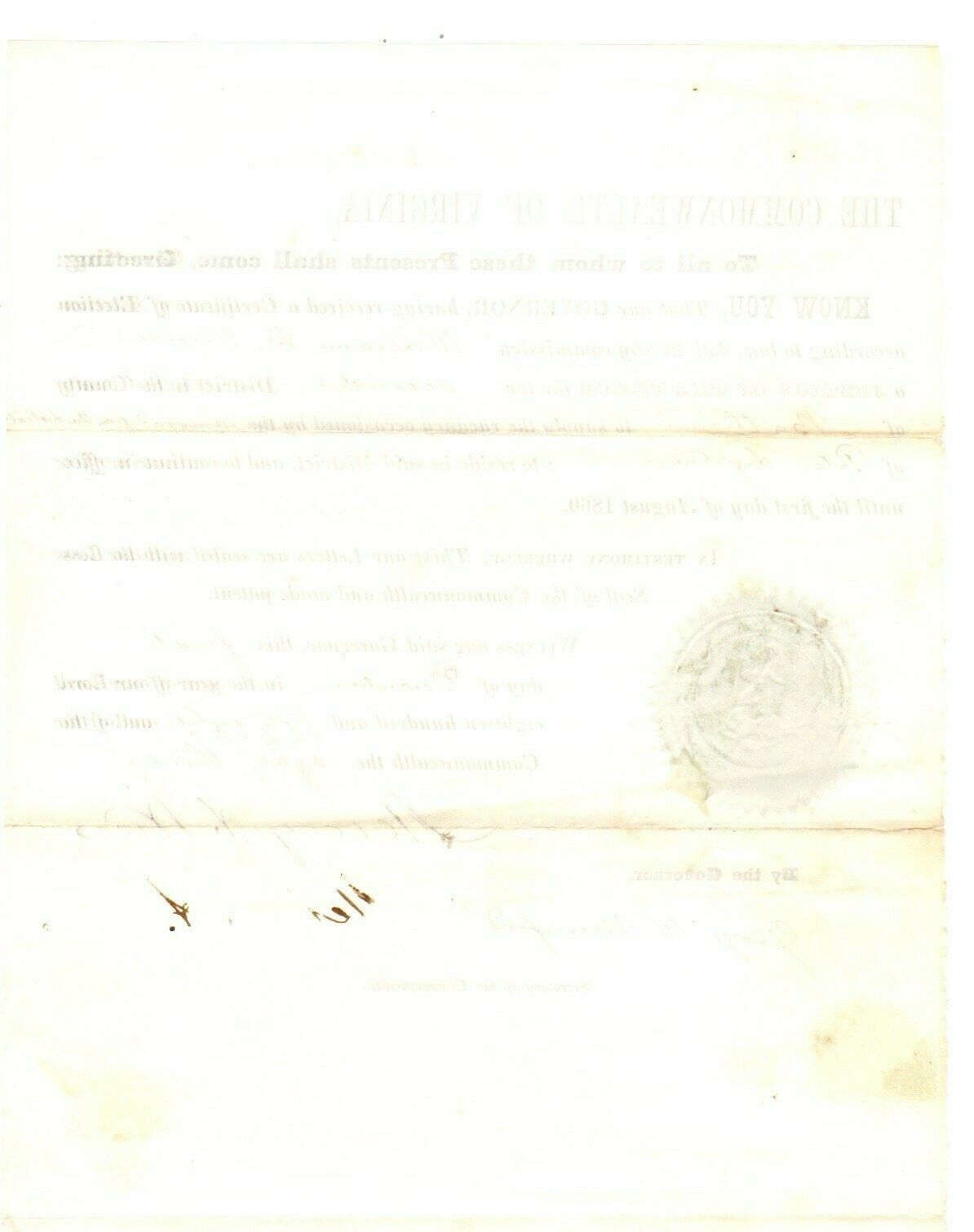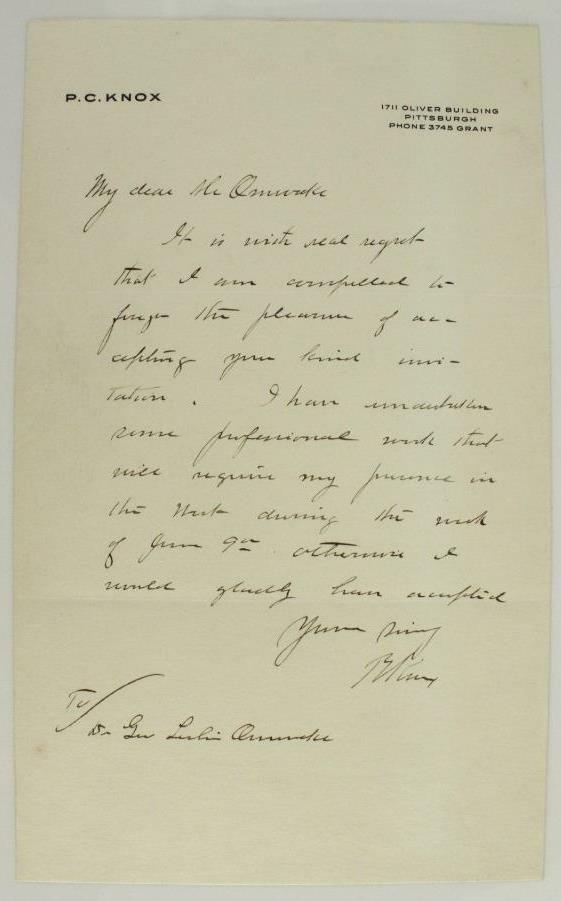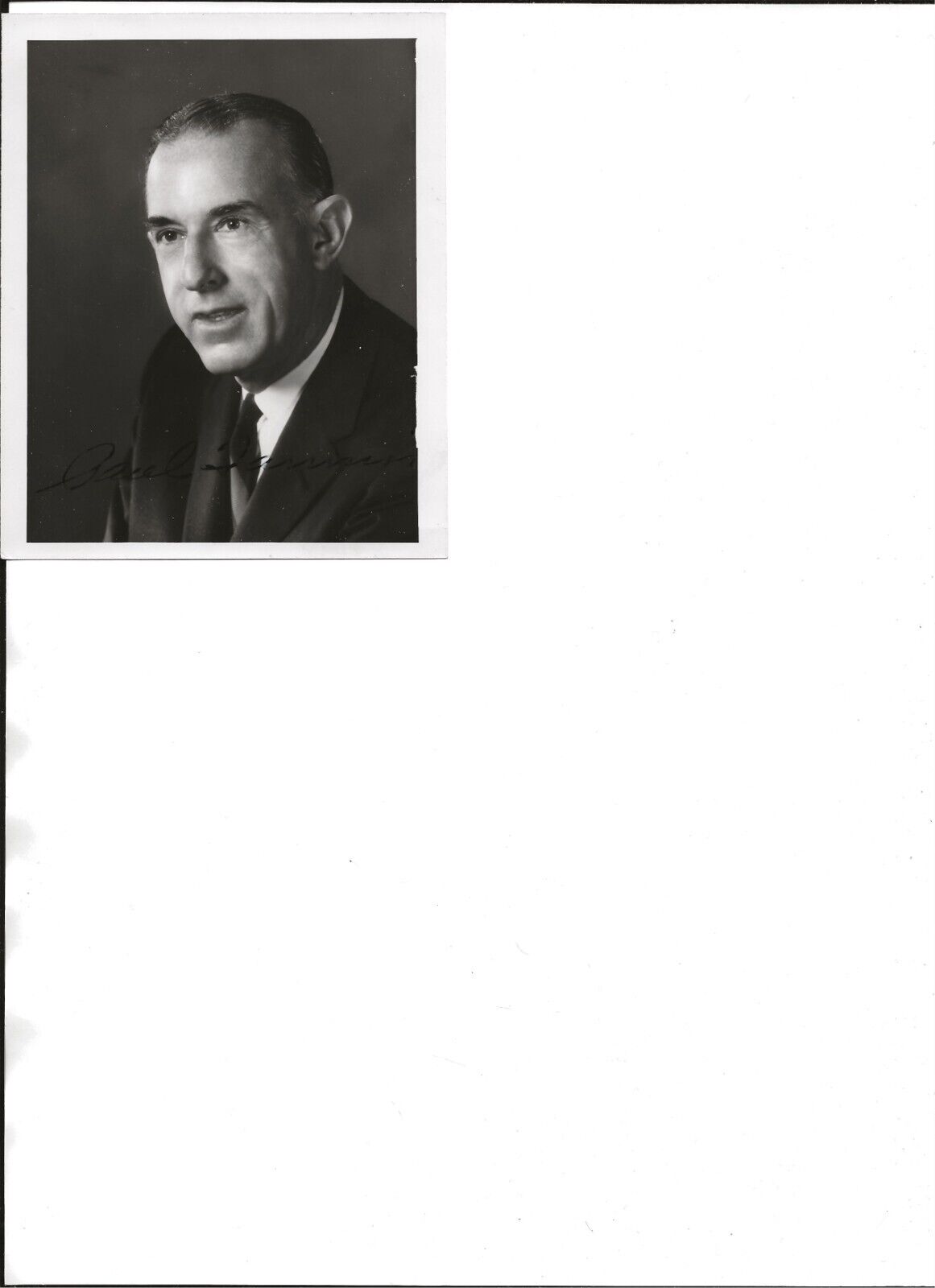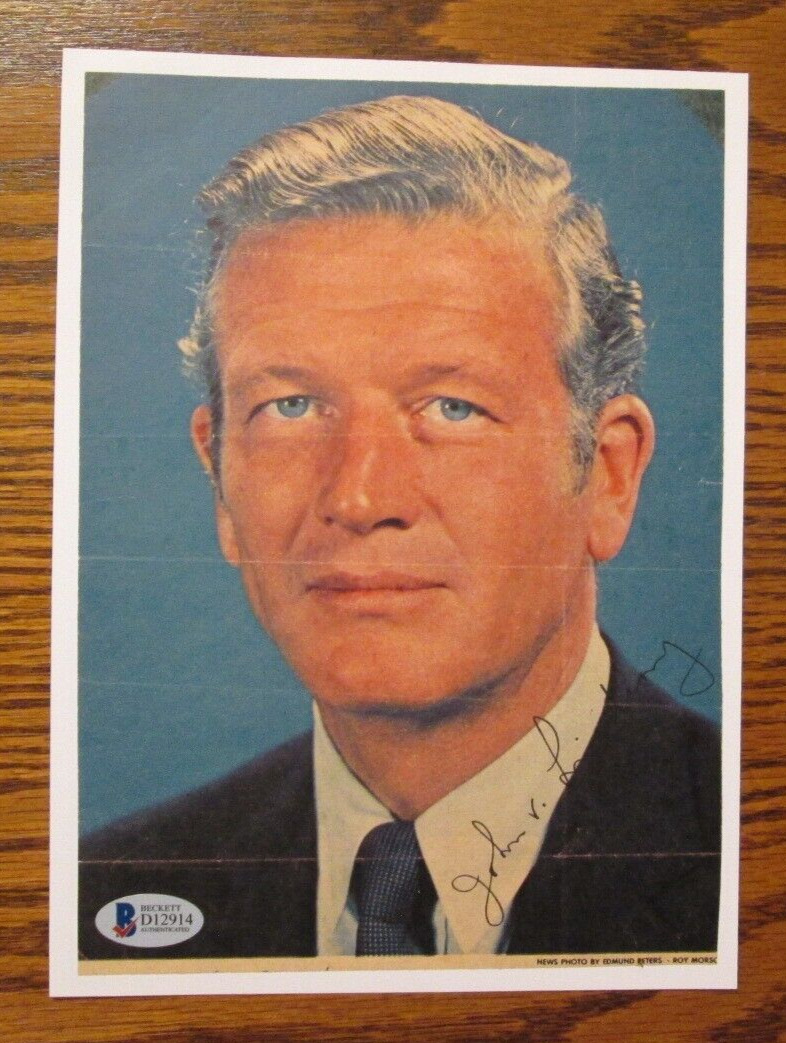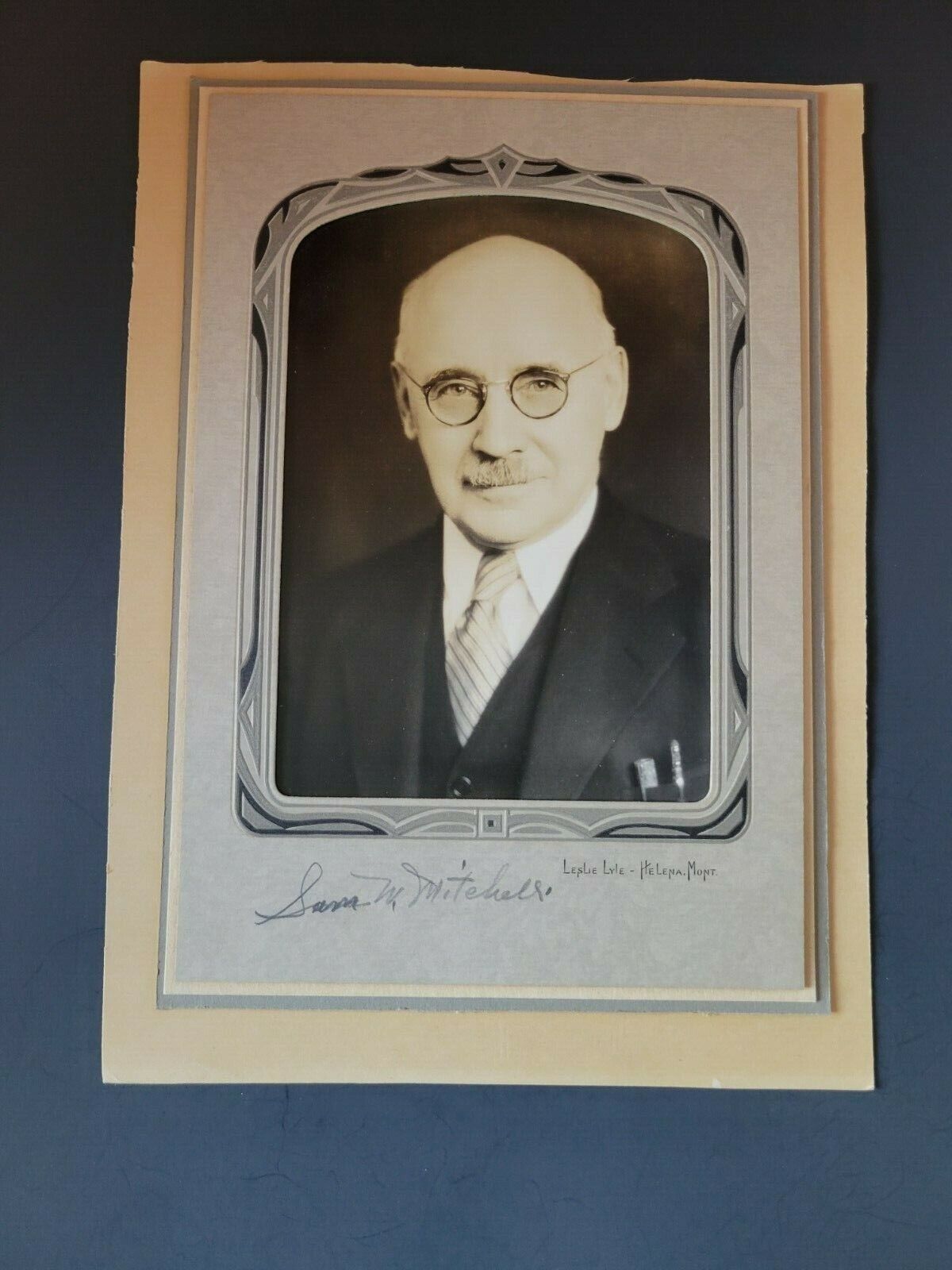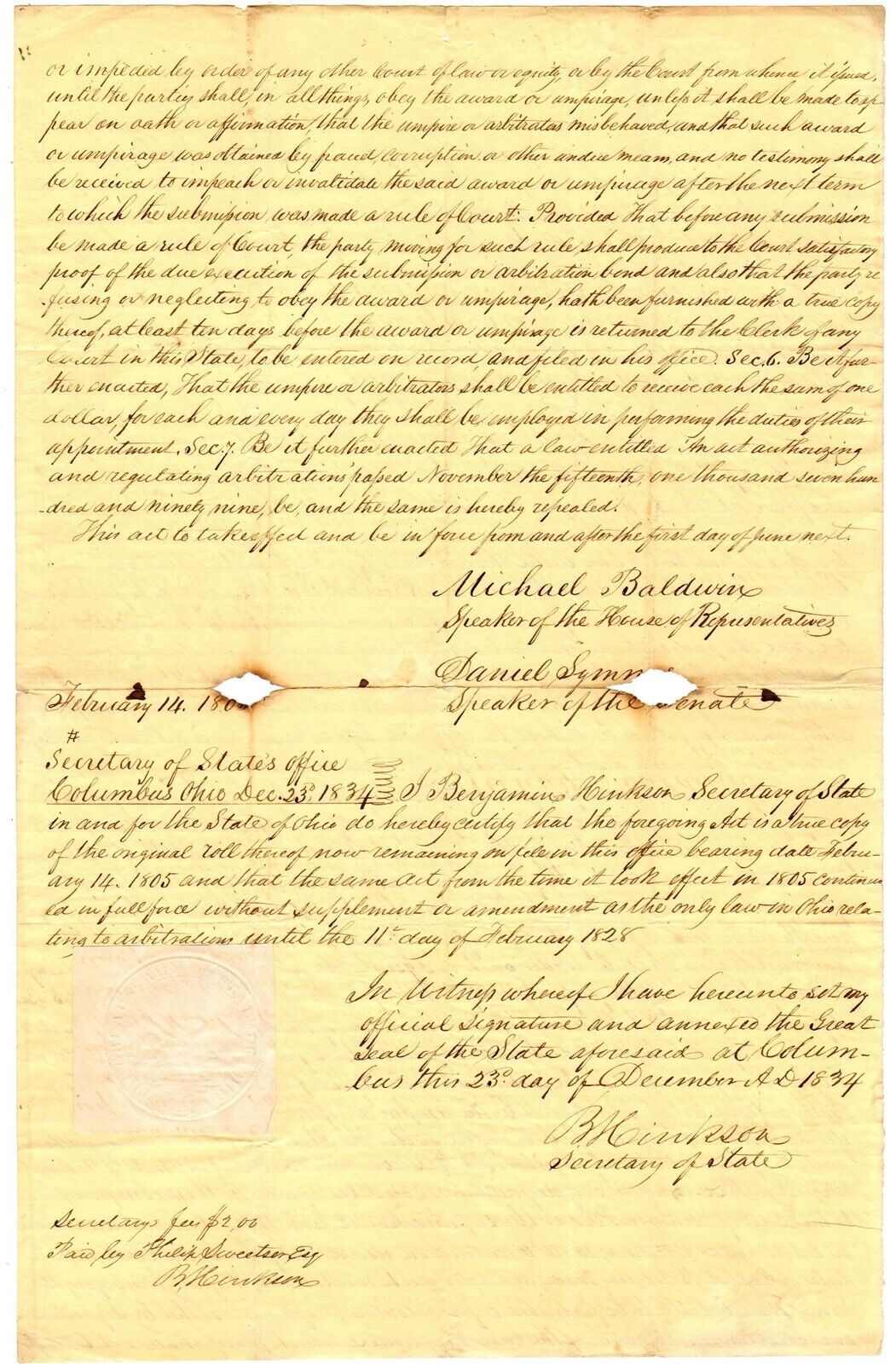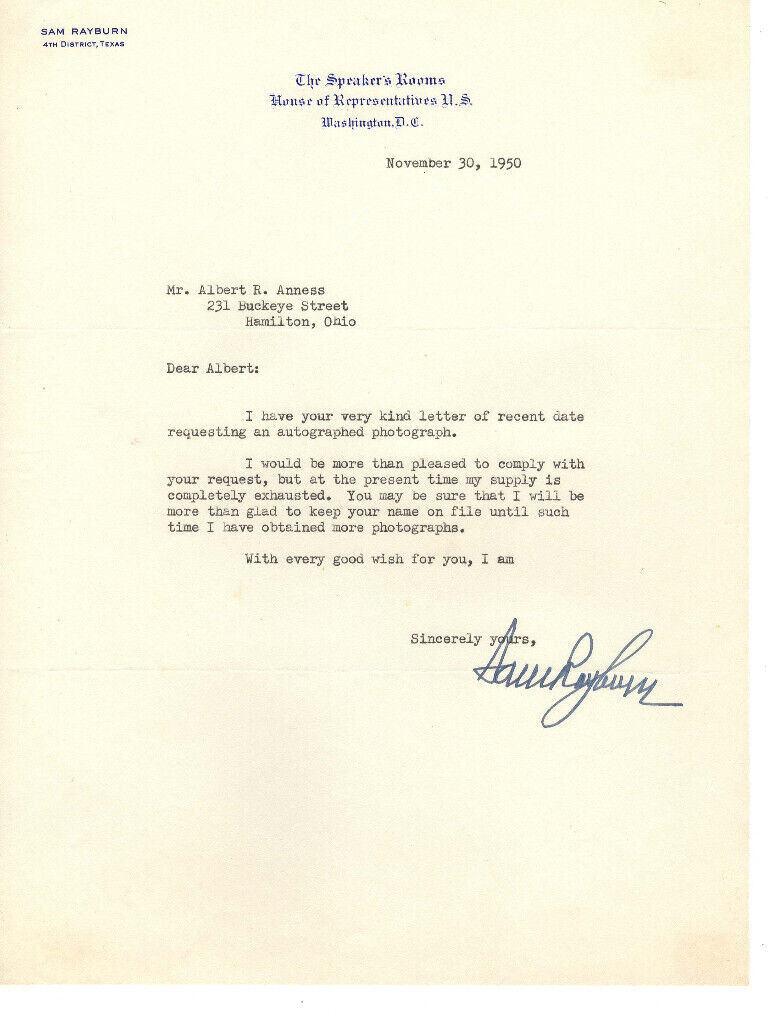-40%
CSA Major Gen Henry Wise, VA Gov. ordered John Brown’s death: 1858 signed doc.
$ 27.45
- Description
- Size Guide
Description
CSA Major Gen Henry Wise, VA Gov. ordered John Brown’s death: 1858 signed doc. Confederate Major General Henry Wise, Va. Congressman 1833-44, US Minister to Brazil 1844-47, Governor of Virginia 1856-60, One of his last official acts as Governor was to sign the death warrant of John Brown: 1858 signed VA Justice of the Peace commission. FRAMEABLE Part-printed Justice of the Peace commission of William B. Vance, hand-signed by Governor of Virginia, Henry Wise Attractive document with embossed great seal of Virginia at lower-left. Signature bold and clear but with some ink smear, mildly affected by folds. Document size 8 in. by 10 in. rag-content paper. Mildly age toned, has been folded, a few scattered tiny stains in the margins, very good condition. From Wikipedia, the free encyclopedia Henry Alexander Wise (December 3, 1806 – September 12, 1876) was an American lawyer and politician from Virginia. He was a U.S. Representative and Governor of Virginia, and US Minster to Brazil. During the American Civil War, he was a general in the Confederate States Army. After a shaky beginning as a general Wise commanded a brigade in the division of Maj. Gen. Theophilus H. Holmes during the Seven Days Battles. For the rest of 1862 and 1863, he held various commands in North Carolina and Virginia. In 1864 Wise commanded a brigade in the Department of North Carolina & Southern Virginia. His brigade defended Petersburg and was credited with saving the city at the First Battle of Petersburg and to an extent at the Second Battle of Petersburg. Wise commanded a brigade in the Army of Northern Virginia during the final stages of the Siege of Petersburg. He was promoted to the rank of major general after the Battle of Sayler's Creek. He was with Robert E. Lee at Appomattox Court House, where he fought bravely but urged Lee to surrender. This is a genuine original, period piece, not a copy or reproduction. Return for any reason or even for no reason. Return via same method as shipped. Returned item must be in same condition as when shipped for full refund. " Flemon Davis "Flem" Sampson (January 23, 1875 – May 25, 1967) was the 42nd Governor of Kentucky, serving from 1927 to 1931. He graduated from Valparaiso University in 1894, and opened a law practice in Barbourville, Kentucky. He formed a political alliance with future Representatives Caleb Powers and John Robsion, both prominent Republicans in the eastern part of the state. By 1916, he was serving on the Kentucky Court of Appeals (the state's highest court) and had previously served as a county judge and circuit court judge. In 1923, he was elevated to chief justice of the Court of Appeals. He served until 1927, when he became the Republican gubernatorial nominee. The Democrats nominated former governor and senator J. C. W. Beckham to challenge Sampson. The primary issue in the campaign was whether to outlaw parimutuel betting at the state's racetracks. Beckham favored the ban, and Sampson opposed it. A political machine, known as the Jockey Club, backed Sampson, and several key Democrats bolted the party after Beckham's nomination. Sampson won the governorship by over 32,000 votes, but every other Republican on the ticket lost by small majorities. The results suggested that some careful vote fraud had been co-odinated to ensure Beckham's defeat, but none was ever proved. Sampson's term in office was a tumultuous one. The 1928 legislature was dominated by Democrats and was not particularly responsive to Sampson's proposals. After the session, Sampson was indicted for accepting gifts from textbook companies, but the charges were later dropped. In 1929, Sampson removed Democratic political boss Ben Johnson from his post as highway commissioner. When legislators reconvened in 1930, they retaliated by stripping Sampson of many of his appointment powers and reinstalling Johnson to his post. Later in the session, Sampson proposed to allow Samuel Insull to dam the Cumberland Falls to generate hydroelectric power. The General Assembly instead voted to accept an offer from T. Coleman du Pont to purchase the falls and turn them into a state park. The Assembly voted to restrict further Sampson's powers in 1930. The end of Sampson's term was complicated by the economic realities of the Great Depression. He called out the Kentucky National Guard to quell a violent mine strike in Harlan County, known as the Battle of Evarts. Following his term, Sampson returned to Barbourville and was re-elected as a circuit court judge. He died May 25, 1967 and was buried in Barbourville Cemetery. ." from wikipedia This is a genuine original, period piece, not a copy or reproductionPowered by SixBit's eCommerce Solution



